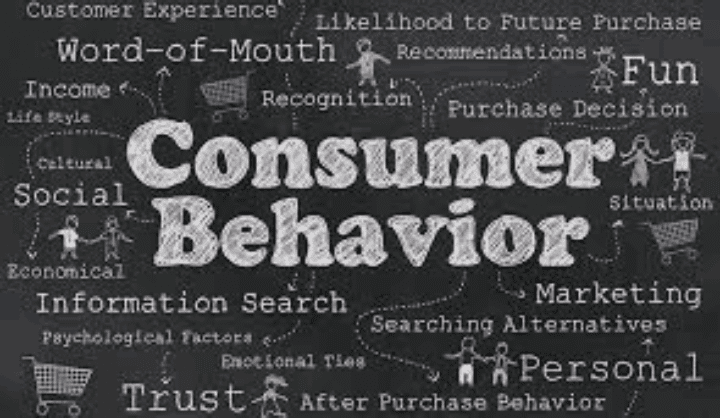Consumer behavior consists of activities/process followed in making any buying decision of goods as well as a service. In recent time service (holiday, travel, etc.), decisions are forming large part of consumer behavior.
One thing needs to be highlighted here is that consumer behavior does not end with purchase of goods or service, but also post purchase activities are included in consumer behavior.
Companies make investment in understanding consumer behavior and implementing strategies, which will help them retain customers.
Consumers can be categorized as an individual consumer and organizational/industrial consumers. Understanding their behavior and buying pattern is important in ultimate survival of companies in the market place.
Furthermore, there is a difference between consumer behavior and buying behavior. Consumer behavior as highlighted before talks about process and actions taken by the final or end users whereas buyer behavior looks at intermediate users (who add value to goods and service) and final users.
Consumer behavior and consumption behavior are two different concepts developed and cannot be used as a substitute. Consumer behavior deals with the process of an individual or organization in coming to the purchase decision, whereas consumption behavior is a study focus on consuming unit or service.
Understanding of the consumer behavior begins with study of the consumer buying process. Consumer buying process is five step activities. The starting with need recognition, which leads to information search, once information is obtained from different sources next step, is the evaluation and intent where in consumer evaluates various parameters of the product or service.
Read Also: 7 Tips to Successfully Grow your Business

The next step in five-step activity is the purchase decision where in intent is converted into an actual purchase of the good or the service. The final step is post-purchase reaction where in customer if she is satisfied with goods or services recommends to other prospective customers or repeat the purchase. If the customer is not happy with purchase, a bad word of mouth follows, and she looks for alternative product or service.
Meaning of Consumer Behavior
Consumer behavior is the study of consumers and the processes they use to choose, use (consume), and dispose of products and services, including consumers’ emotional, mental, and behavioral responses. Consumer behavior incorporates ideas from several sciences including psychology, biology, chemistry, and economics.
Why is Consumer Behavior Important
Studying consumer behavior is important because this way marketers can understand what influences consumers’ buying decisions. By understanding how consumers decide on a product they can fill in the gap in the market and identify the products that are needed and the products that are obsolete. Studying consumer behaviour also helps marketers decide how to present their products in a way that generates maximum impact on consumers. Understanding consumer buying behaviour is the key secret to reaching and engaging your clients, and convert them to purchase from you.
A consumer behavior analysis should reveal:
- What consumers think and how they feel about various alternatives (brands, products, etc.);
- What influences consumers to choose between various options;
- Consumers’ behavior while researching and shopping;
- How consumers’ environment (friends, family, media, etc.) influences their behavior.
Consumer behavior is often influenced by different factors. Marketers should study consumer purchase patterns and figure out buyer trends. In most cases, brands influence consumer behavior only with the things they can control; like how IKEA seems to compel you to spend more than what you intended to every time you walk into the store.
So what are the factors that influence consumers to say yes? There are three categories of factors that influence consumer behavior:
1. Personal factors: an individual’s interests and opinions that can be influenced by demographics (age, gender, culture, etc.).
2. Psychological factors: an individual’s response to a marketing message will depend on their perceptions and attitudes.
3. Social factors: family, friends, education level, social media, income, they all influence consumers’ behavior.
Read Also: Reasons why Advertising is very Important for Business and Consumers
Three factors are identified as determinants to consumer behavior namely economic determinants, psychological determinant and sociological determinant.
Determinants of Consumer Behavior
Economic Determinants are personal income (individual’s purchasing power), family income (total purchasing power of the family), the future income expectations (expected increase or decrease in availability of disposable income), availability of liquid asset (asset, which can be converted to cash), consumer market credit (if market conditions are good credit easily available) and social class (effluent class, upper-middle class, middle class, etc.).
As there are determinants for consumer behavior, similar industrial buying behavior has its own set of determinants, which are overall objectives of the organization, technological capabilities of the organization which consist of information systems and network capabilities and finally organization structure, which includes its capital and number of employees.
In compare the industrial buying process is much more formal process done according to pre-defined policy and norms. The key features of organization buying are it’s a formal and standardized process, it is done in large quantities and may be done at periodic intervals of time and decision-making process usually involves more than one individual.
From above it can be comprehended that consumer behavior is important factor in determining marketing policies.
Related: 31 Healing Powers of Bitterleaf (Vernonia Amygdalina)
